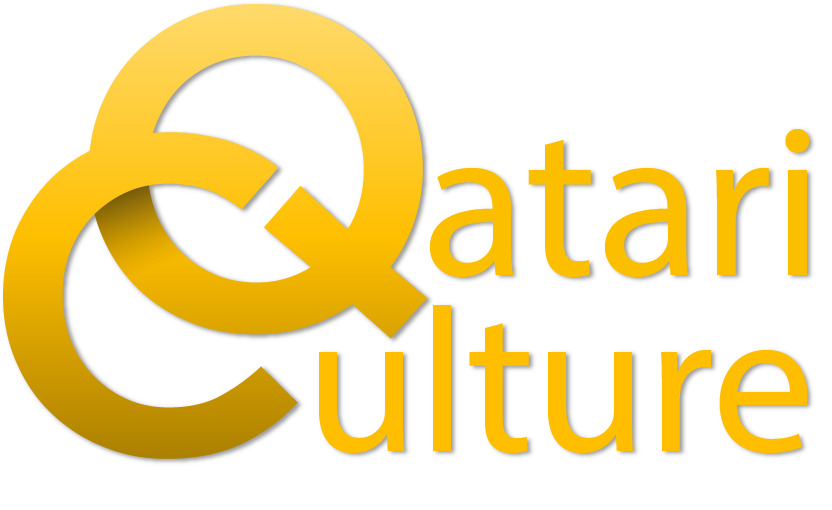يلعب الدين دورًا أساسيًا في تشكيل المشهد الثقافي لقطر, مع الإسلام باعتباره الإيمان السائد. كأمة تحكم فيها القيم الإسلامية الحياة اليومية, الثقافة القطرية مملوءة بالمبادئ الدينية التي تؤثر على جوانب مختلفة من المجتمع, بما في ذلك القوانين, جمارك, التفاعلات الاجتماعية, والسلوك الفردي. إن فهم تأثير الإسلام على الثقافة القطرية يوفر رؤى قيمة لهوية البلاد والنسيج الاجتماعي.
السياق التاريخي
تم تقديم الإسلام إلى شبه الجزيرة العربية في القرن السابع الميلادي ، ومنذ ذلك الحين أصبح الدين المهيمن في المنطقة. قطر, مثل العديد من دول الخليج, لديه تراث إسلامي غني تطورت على مر القرون. لا يظهر تأثير الإسلام في الممارسات الدينية فحسب ، بل أيضًا في تطوير قوانين الأمة, المعايير الثقافية, والقيم المجتمعية.
عندما تحولت قطر من مجتمع صغير للملفقة إلى دولة حديثة, ظلت المبادئ الإسلامية أساسية في حوكمتها وهويتها. يؤكد الدستور القطري الإسلام كدين الدولة, فرض هذا الشريعة الإسلامية (الشريعة) يعمل كأساس للتشريع. هذا المتشابك بين الدين والقانون يضمن أن قيم الإسلام تتخلل جميع جوانب الحياة في قطر.
الحياة اليومية والممارسات الدينية
تتأثر الحياة اليومية لقططريين بشكل كبير بالتعاليم الإسلامية, مع الصلوات اليومية الخمس (صلاح) كونه جانبًا أساسيًا في روتينهم. في أوقات محددة طوال اليوم, دعوة للصلاة (adhan) صدى في جميع أنحاء البلاد, دعوة المسلمين إلى التوقف والمشاركة في العبادة. هذه الممارسة تعزز الشعور بالمجتمع والعلاقة الروحي بين السكان.
خلال شهر الكريم رمضان, أهمية الإسلام واضحة بشكل خاص. رمضان هو وقت الصوم, انعكاس, والصلاة, حيث يمتنع المسلمون من الطعام والشراب من الفجر حتى غروب الشمس. هذه الممارسة تعزز الانضباط الذاتي, التعاطف مع الأقل حظًا, وعلاقة أعمق بالله. في قطر, تبني روح رمضان من قبل المجتمع بأكمله, مع العائلات والأصدقاء يجتمعون من أجل الإفطار (وجبة المساء كسر الصيام) ومشاركة الوجبات مع المحتاجين.
العطل الإسلامية, مثل Eid al-Fitr و Eid al-Adha, تجسد أيضًا تأثير الدين على الثقافة القطرية. يمثل عيد الفطر نهاية رمضان ويحتفل به مع صلاة جماعية, وجبات احتفالية, وإعطاء الهدايا. تؤكد العطلة الخيرية, حيث يتم تشجيع العائلات على التبرع لأولئك الأقل حظًا. بصورة مماثلة, يعيد العيد عداها استعداد النبي إبراهيم للتضحية ابنه في طاعة الله, تعزيز موضوعات التضحية, مجتمع, والكرم.
قيم الأسرة والبنية الاجتماعية
يركز الإسلام بشكل قوي على الأسرة, وهذا ينعكس في المجتمع القطري. تعتبر وحدة الأسرة حجر الزاوية في الهيكل الاجتماعي, مع علاقات قوية من القرابة والمسؤولية. الآباء غرس القيم الإسلامية لدى أطفالهم منذ سن مبكرة, تعليمهم مبادئ مثل الاحترام, العطف, وأهمية الصلاة.
غالبًا ما يُنظر إلى الزواج في الثقافة القطرية كمؤسسة مقدسة, مع التعاليم الإسلامية توجه العملية. تقليديا, يتم ترتيب الزيجات, مع العائلات تلعب دورًا مهمًا في اختيار الأزواج. العادات الإسلامية تملي أن عقد الزواج (نيكا) هو اتفاق رسمي يحدد حقوق ومسؤوليات كلا الشريكين. يؤكد هذا الجانب التعاقدي على خطورة الالتزام الذي يتم تقديمه.
تتأثر أدوار الجنسين في المجتمع القطري أيضًا بالتعاليم الإسلامية. بينما قامت قطر بخطوات كبيرة نحو المساواة بين الجنسين, لا تزال القيم التقليدية تلعب دورًا في تشكيل التوقعات. غالبًا ما تشغل النساء مناصب احترام داخل الأسرة والمجتمع, تحقيق التوازن بين أدوارهم كمقدمي الرعاية بفرص للتعليم والتوظيف. شاركت النساء القطريات بشكل متزايد في قطاعات مختلفة, بما في ذلك الأعمال, حكومة, والأوساط الأكاديمية, بينما لا تزال تدعم القيم العائلية.
الضيافة والعادات الاجتماعية
الضيافة هي جانب متأصل للغاية من الثقافة القطرية, متجذر في المبادئ الإسلامية التي تؤكد على الكرم واللطف. يتم التعامل مع الضيوف بأقصى درجات الاحترام والشرف, ومن المعتاد أن تقدم Qataris المرطبات, عادة القهوة العربية (قهوا) والتواريخ, للزوار كعلامة على الترحيب. يمتد هذا التقليد من الضيافة إلى كل من التجمعات الاجتماعية والأحداث الرسمية, تعزيز أهمية المجتمع والعلاقات.
تتأثر التفاعلات الاجتماعية في قطر أيضًا بالآداب الإسلامية. تحياتي غالبًا ما تكون دافئة ودية, مع عبارة شائعة "As-Salamu Alaykum" (السلام عليكم). المصافحة هي المعتادة, لكن من المهم أن نلاحظ أن الاتصال الجسدي بين الرجال والنساء الذين لا يرتبطون ارتباطًا وثيقًا يتم تجنبها عمومًا. تؤكد هذه الممارسة على المبدأ الإسلامي للتواضع واحترام الحدود الشخصية.
رموز اللباس في قطر تعكس القيم الإسلامية للتواضع. الملابس القطرية التقليدية, مثل الثوب للرجال والعباءة للنساء, يمثل هذا الالتزام بالتواضع مع الاحتفال أيضًا بالهوية الثقافية. يتم تشجيع الزوار والمغتربين على ارتداء الملابس بشكل متحفظ, خاصة في الأماكن العامة وأثناء الأحداث الدينية, لإظهار احترام الجمارك المحلية.
فن, بنيان, والتعبيرات الثقافية
التأثير الإسلامي واضح أيضًا في الفن والعمارة القطرية, حيث يتم دمج الأنماط التقليدية مع التصميم الحديث. الفن الإسلامي, تتميز بأنماط هندسية معقدة, الخط, و arabesques, يمكن رؤيته في المساجد, المباني العامة, والمنازل الخاصة. ال قرية كتارا الثقافية في الدوحة, على سبيل المثال, يعرض مزيج من الهندسة المعمارية التقليدية والمعاصرة, تعزيز التبادل الثقافي والتقدير.
المساجد أساسية لثقافة القطري, العمل كأماكن للعبادة وجمع المجتمع. ال الإمام محمد بن عبد وهاب مسجد, واحدة من أكبر المساجد في قطر, هي تحفة معمارية تعكس المبادئ الإسلامية وتكون بمثابة مركز للأنشطة الدينية. غالبًا ما يتضمن تصميم وتخطيط المساجد عناصر تعزز التجربة الروحية, مثل القباب, مآسي, وقاعات الصلاة.
تلعب الأدب والشعر أيضًا دورًا مهمًا في التعبير عن القيم الإسلامية والهوية الثقافية. غالبًا ما يستلهم الشعراء القطريون من التعاليم الإسلامية, استخدام فنهم لنقل رسائل الإيمان, حب, والمجتمع. ال مكتبة قطر الوطنية وتوفر العديد من المهرجانات الثقافية منصات لتعزيز الأدب المحلي والحفاظ على التراث الأدبي للبلاد.
خاتمة
تأثير الإسلام على الثقافة القطرية عميق ومتعدد الأوجه, تشكيل كل جانب من جوانب الحياة, من الروتين اليومي إلى الهياكل الاجتماعية والتعبيرات الفنية. كأمة تحتضن تراثها الإسلامي, يعزز قطر الشعور بالهوية والانتماء بين شعبها مع تعزيز قيم التعاطف, الكرم, والمجتمع.
إن فهم دور الدين في الثقافة القطرية أمر ضروري لأي شخص يتطلع إلى التعامل مع المجتمع وتقدير تقاليده الغنية. مع استمرار تطور قطر في عالم حديث, تظل مبادئ الإسلام أساسية في هويتها الثقافية, توجيه الأمة وهي تتنقل في تعقيدات الحياة المعاصرة بينما تظل متجذرة في تراثها. من خلال تبني كل من التقاليد والتقدم, تجسد قطر كيف يمكن للإيمان أن يثري ويحدد مجتمعًا, خلق مزيج متناغم من القديم والجديد.

تقدم التقاليد والثقافة القطرية مزيجًا ساحرًا من التراث البدوي القديم, العقيدة الإسلامية, وروح المجتمع النابضة بالحياة التي تدعوك للاستكشاف والتجربة بشكل مباشر.

تقدم التقاليد والثقافة القطرية مزيجًا ساحرًا من التراث البدوي القديم, العقيدة الإسلامية, وروح المجتمع النابضة بالحياة التي تدعوك للاستكشاف والتجربة بشكل مباشر.
حقوق الطبع والنشر 2024 © جميع الحقوق محفوظة للثقافة القطرية